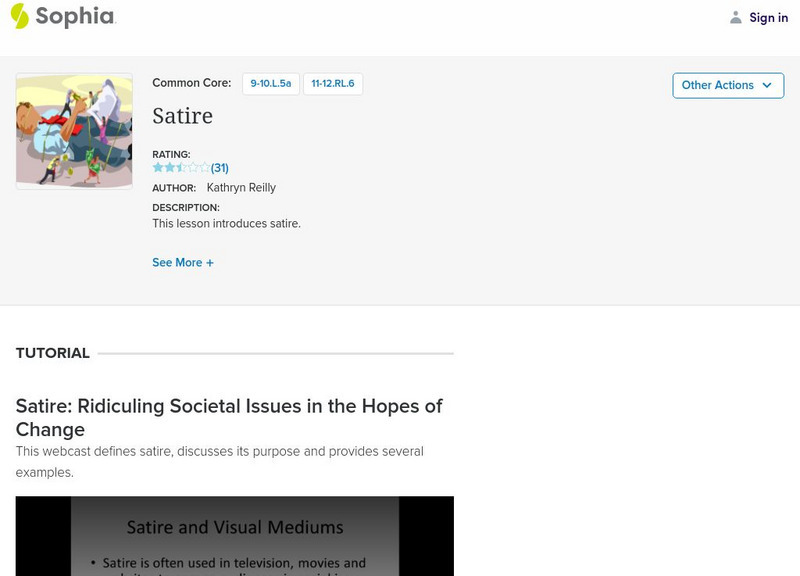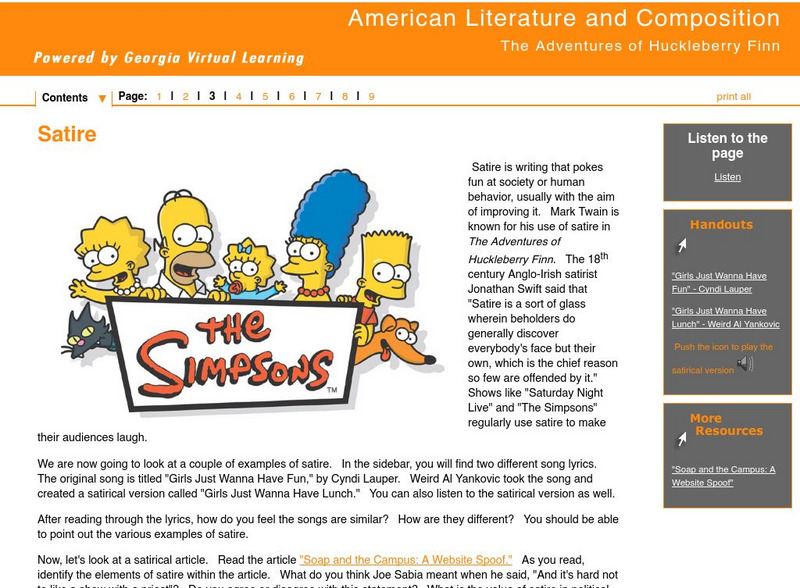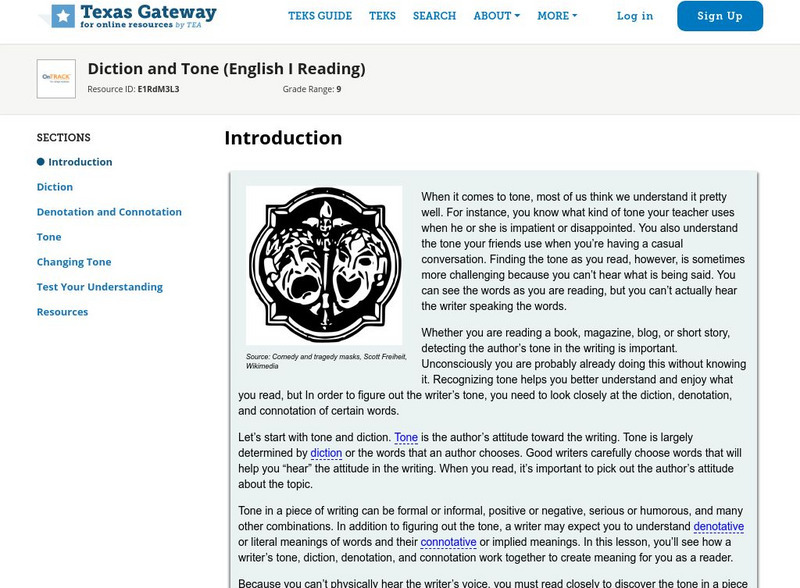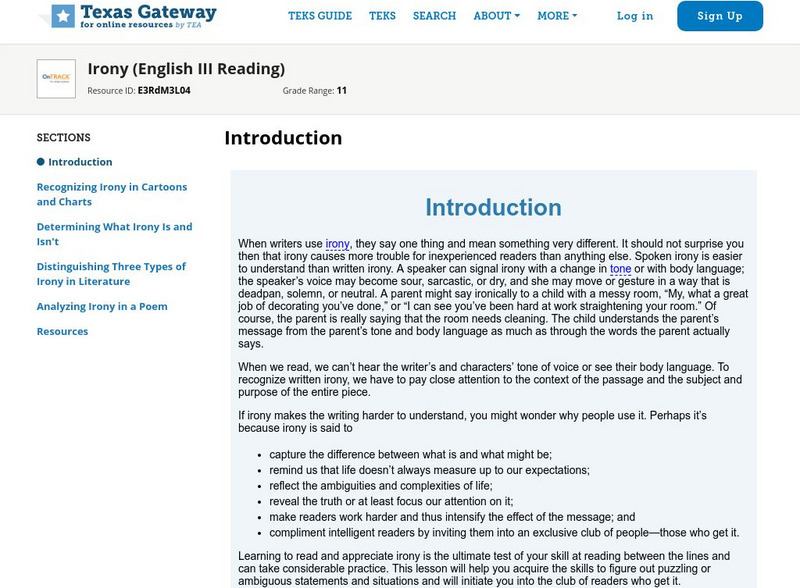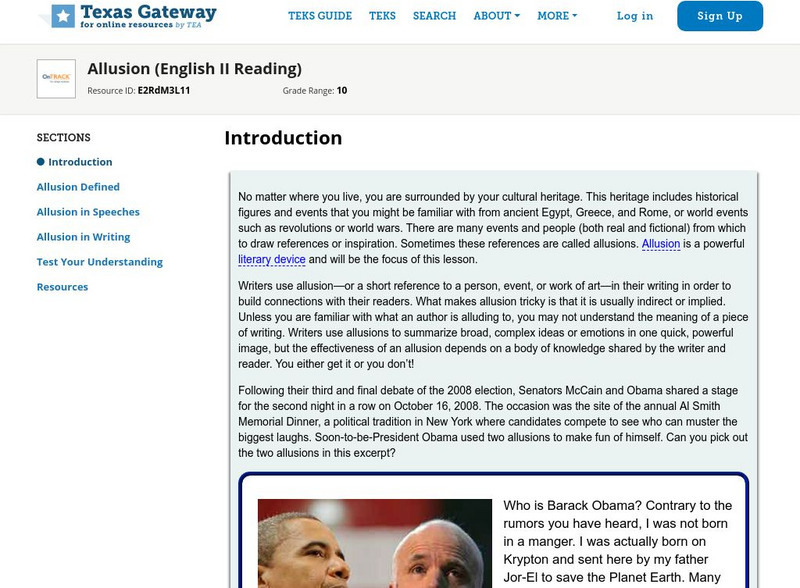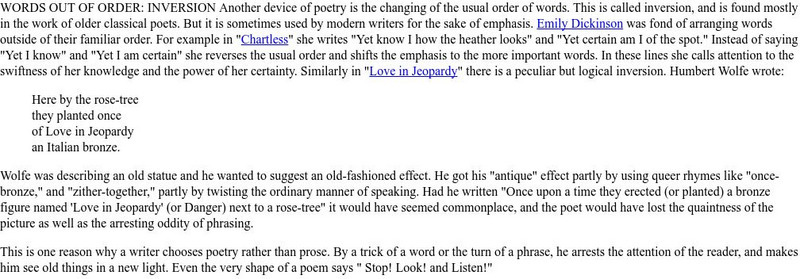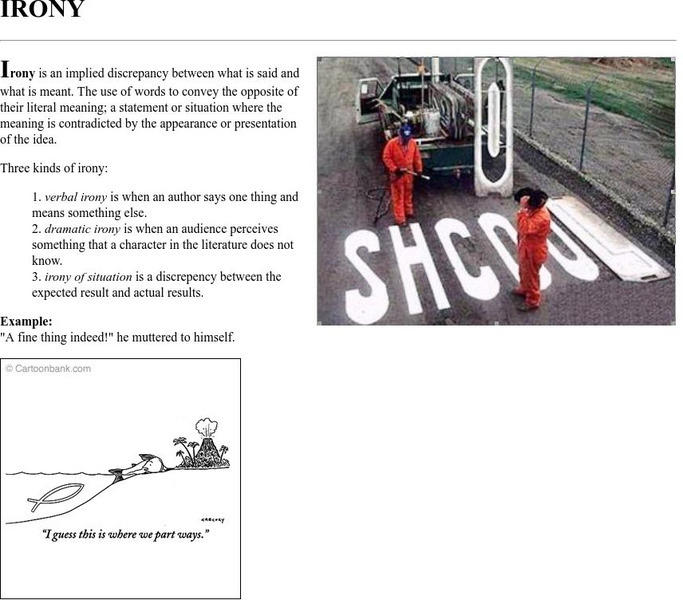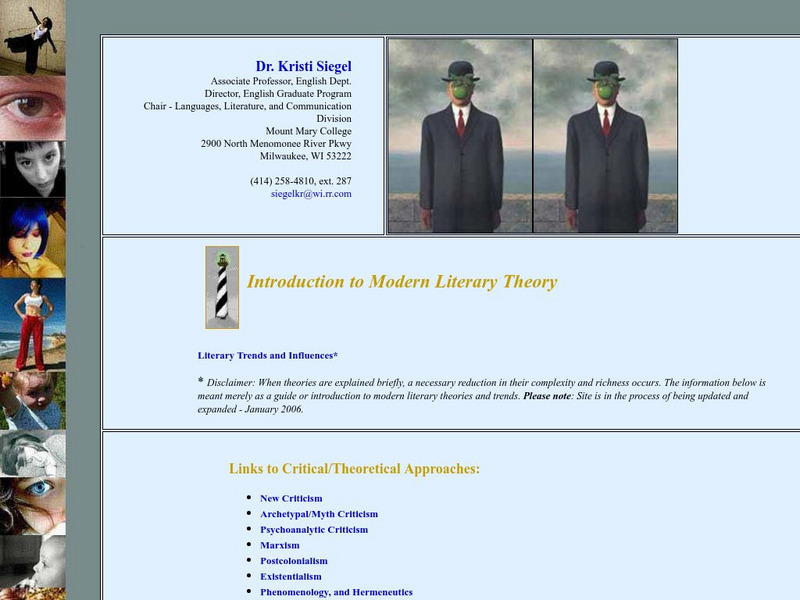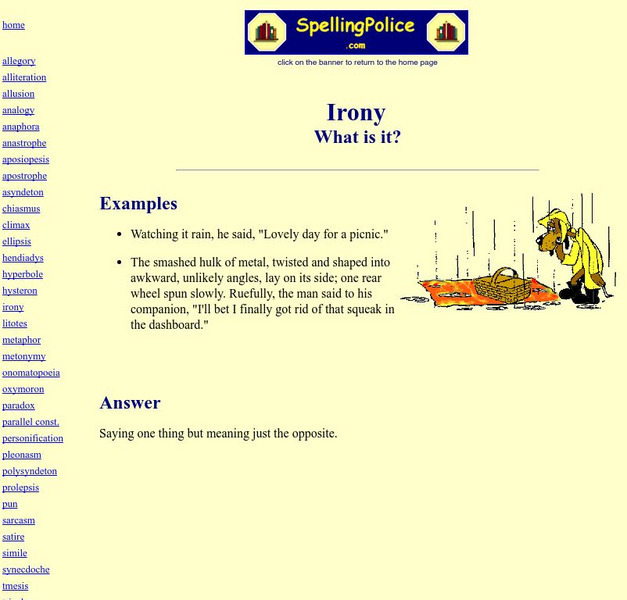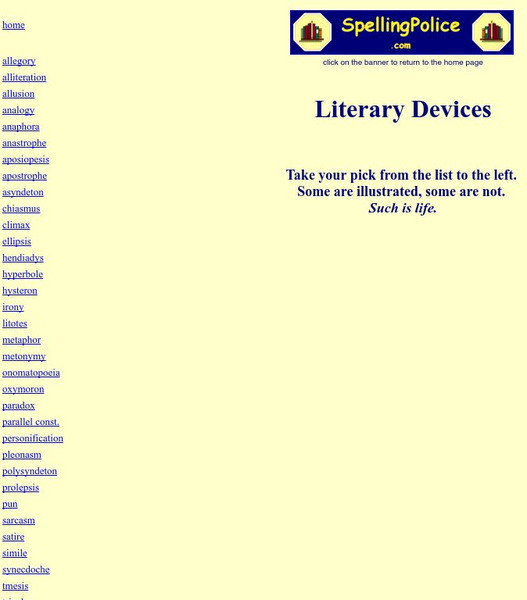Georgia Department of Education
Ga Virtual Learning: Ap Literature & Composition: Satire and Humor
This unit focuses on satire and humor; it defines satire as a literary device used to expose follies, vices, and hypocrites to bring about change. It includes links to Gullivers Travels and Modest Proposal by Jonathan Swift, "The Rape of...
Yale University
Yale University: Open Yale Courses: Introduction to Theory of Literature
Access any one of twenty-five lectures, in audio, video, or text format, from a university-level course in literary analysis and critical literary theories. Considers postmodernism, New Criticism, feminism, deconstructionism, and an...
Sophia Learning
Sophia: Satire
This video lesson focuses on satire including its definition, its purpose, how it works, media examples, and literary examples. Real Player is required.
Georgia Department of Education
Ga Virtual Learning: American Lit: The Adventures of Huckleberry Finn: Satire
This lesson focuses on satire and parody. Students read the text of Cyndi Lauper's "Girls Just Wanna Have Fun" and its parody "Girls Just Wanna Have Lunch" by Weird Al Yankovic and compare/contrast the two. The audio of Weird Al's...
Texas Education Agency
Texas Gateway:diction and Tone (English I Reading)
In this learning module, the user will learn and apply the concepts of tone and diction. Tone is the author's attitude toward the writing. Tone is largely determined by diction or the words that an author chooses.
Texas Education Agency
Texas Gateway: Dramatic Irony (English I Reading)
This lesson focuses on dramatic irony including what it is, it's purpose, examples in various genre, and a practice exercise. RL.11-12.6 Irony/Satire/etc
Texas Education Agency
Texas Gateway: Irony, Sarcasm, and Paradox (English Ii Reading)
[Accessible by TX Educators. Free Registration/Login Required] In this lesson, you will learn to evaluate the role of irony, paradox, and sarcasm in literary nonfiction such as speeches and essays. It includes the definitions and...
Texas Education Agency
Texas Gateway: Irony, Sarcasm, Paradox (English I Reading)
[Accessible by TX Educators. Free Registration/Login Required] In this lesson, students will learn to identify and explain the purposes of irony and paradox in poetry. Both of these poetic devices are ways of saying one thing and meaning...
Texas Education Agency
Texas Gateway: Irony (English Iii Reading)
[Accessible by TX Educators. Free Registration/Login Required] Learning to read and appreciate irony is the ultimate test of your skill at reading between the lines and can take considerable practice. This lesson will help you acquire...
Department of Defense
Do Dea: English 4; Wealth and Poverty
A learning module asking students to analyze different types of texts, learn literary terms, write a satirical essay and a mock newspaper article, and work with vocabulary skills all within themes related to wealth and poverty.
Rutgers University
Rutgers University: Glossary of Literary and Rhetorical Terms: Modernism
A succinct definition of modernism, with examples of authors and styles.
Texas Education Agency
Texas Gateway: Understanding and Analysis of Literary Text: Allusion
A learning module that teaches students about allusion as a literary device in five mini-lessons: Introduction, Allusion Defined, Allusion in Speeches, Allusion in Writing, Test Your Understanding.
British Library
British Library: Wilde's the Importance of Being Earnest: A Close Reading
In this lesson, students will consider several aspects of Oscar Wilde's most popular of comedies, "The Importance of Being Earnest". The success of this play is in part due to its examination of moral principles - in this case, the...
iCivics
I Civics: Mini Lesson B: Satire
Learners explore how satirical news stories, like political cartoons, are meant to poke fun, not to trick people. Students learn to spot satire and understand both the joke and the purpose of this news-related genre.
University of Groningen
American History: Outlines: Neoclassism: Epic, Mock Epic and Satire
Unfortunately, "literary" writing was not as simple and direct as political writing. When trying to write poetry, most educated authors stumbled into the pitfall of elegant neoclassicism. The epic, in particular, exercised a fatal...
Ted Nellen
Cyber English (By Ted Nellen): Inversion
This is a glossary entry for the term "Inversion" including definition and literary examples.
Ted Nellen
Cyber English (By Ted Nellen): Irony
This is a glossary entry for the term "Irony" including the definition, the three types, and visual examples.
Ted Nellen
Cyber English (By Ted Nellen): Satire
This is a glossary entry for the term "Satire" including definitions and examples. Also offers links to more information and examples.
Wikimedia
Wikipedia: Understatement
This is an encyclopedia entry for the word "Understatement." It defines the term, provides background information about it, and offers references.
Johns Hopkins University
Johns Hopkins University: The Role of Literary Criticism
This site has information about the role of literary criticism thoroughout time.
Other
Kristi Siegel, ph.d.: Introduction Modern Literary Theory
This site provides an overview of literary terms and critical theories, compiled by a professor of English who teaches at the university level.
Other
Spelling police.com: Irony
Informational site that provides the definition for and examples of irony.
Other
Spelling police.com: Oxymoron
Informational site that provides the definition for and examples of oxymoron. L.9-10.5a Figures of Speech
Other
Spelling police.com: Literary Devices
A simple list of literary terms. Click on each for a definition and examples.




